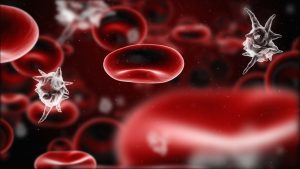 Researchers identified the cause of heart damage, myocardial dysfunction, in sepsis. Myocardial dysfunction can be a common complication of septic shock – blood poisoning with low blood pressure. Researchers from the University of Liverpool’s Institute of Infection and Global Health have uncovered the cause of heart damage in septic shock.
Researchers identified the cause of heart damage, myocardial dysfunction, in sepsis. Myocardial dysfunction can be a common complication of septic shock – blood poisoning with low blood pressure. Researchers from the University of Liverpool’s Institute of Infection and Global Health have uncovered the cause of heart damage in septic shock.
The researchers found that histones – nuclear proteins – cause heart damage when they are released into blood circulation after cell damage from sepsis. Histone levels are biomarkers that can help predict which patients are at a higher risk for heart complications.
Advertisement
Dr. Yasir Alhamdi from the University’s Institute of Infection and Global Health said, “This new discovery has important clinical implications. Firstly, we now provide a much-needed explanation for why cardiac injury markers are high in sepsis. Secondly, histone levels in the blood can potentially be used at an early stage to predict which septic patients are at highest risk of developing deadly heart complications. This can improve overall management of patients with sepsis worldwide.”
The researchers have developed and tested specific antibodies in order to null the toxic effect of histones, which can also help reduce the risk of heart complications.
Professor Cheng-Hock Toh added, “The translational impact to patients with sepsis can extend beyond biomarker prediction of heart complications, to novel targeted treatment for improved survival. This discovery could therefore enable us to better stratify patients for more precise and personalized treatment in sepsis.”
Treatment of myocardial dysfunction
There are three main issues when treating myocardial dysfunction for doctors to keep in mind. First, treatment must not provoke tachycardia or arrhythmia. Second, it should not produce arterial hypotension. And, lastly, it should not impair microcirculation.
Common treatments for myocardial dysfunction include:
- Dobutamine
- Levosimendan – calcium sensitizer
- Norepinephrine – vasopressor
- Epinephrine
- Milrinone – phosphodiesterase inhibitor
- Anti-inflammatory therapy
